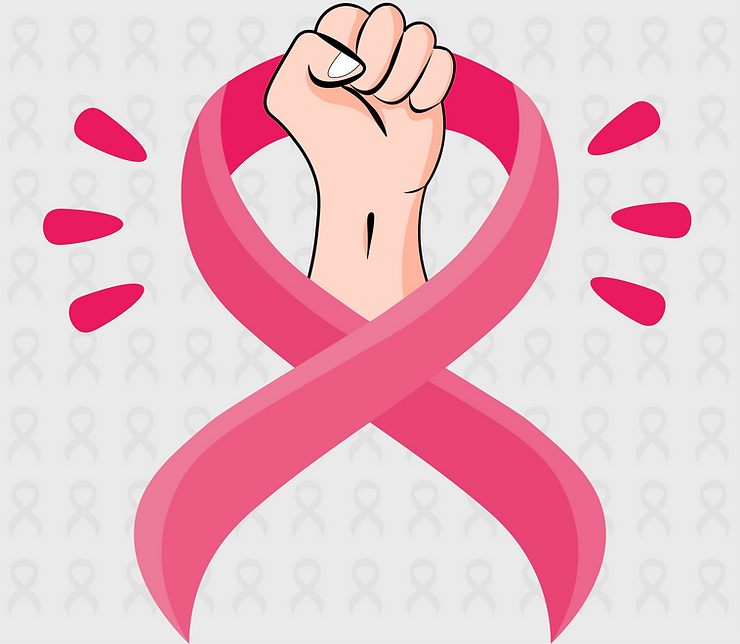
New Initiatives Aimed at Ending Cancer and Preventative Actions to Reduce your Risk
At Libertana, our patients, their health and their families, are our priorities. To help promote sound health, we seek to provide useful health information and resources. It’s with this motivation that we highlight Breast Cancer Awareness Month and take a look at some recent initiatives aimed at ending cancer. October of every year serves as a reminder to support the millions affected by breast cancer and do what we can to spread awareness needed to those who may be impacted in the future. It’s with this fact in mind, that we highlight valuable and practical information to you regarding not only breast cancer, but all cancers. At Libertana, we recognize the importance of highlighting cancer awareness and some new initiatives aimed at tackling this scourge.
Project Moonshot
Earlier this year President Biden announced the restart of Cancer Moonshot, a program aimed at accelerating scientific discovery and fostering innovation with the ultimate goal of reducing the cancer death rate by half within 25 years and improving the lives of people with cancer and cancer survivors. From trialing multi-cancer detection tests to increasing the pipeline of new cancer drugs, through the NCI Project Moonshot has supported over 250 research projects.
Falling Cancer Death Rates
Since 1991 cancer death rates have fallen 32%In the last several years. This can be attributed to may factors including; a reduction in smoking rates, increasing awareness, technological innovations such as immunotherapy, and improving technology for early detection. This steady decrease in cancer deaths, while seemingly incremental and small, with a 2.3% year over year reduction in deaths between 2016 and 2019 means that 3.5 million people are still alive today due to these recent innovations and initiatives.
Prevention and Early Detection
While there are life choices that can increase your risk of cancer – excessive alcohol consumption, obesity, and a lack of exercise, many cancers occur due to genetic risk factors which unfortunately are not avoidable. While this may seem frightening, with awareness, information, and due diligence, you can vastly improve your ability combat this disease.
What can I do to lower my risk?
With a healthy lifestyle and a dedicated awareness to the early signs, many cancers are often manageable, and beatable. Using breast cancer as an example, when detected early, the 5-year survival rate is 93-99%.
So how can I detect it early?
- Self-examinations
All adults should perform monthly breast or testicular self-exams. In doing so, you will be able to more easily identify any changes in your body. Any changes should be discussed with a healthcare professional, but only you can serve as the first line of defense for detection. In fact, 40% of all diagnosed breast cancers are detected by women who feel a lump, so establishing a regular self-exams are very important.
- Regularly scheduled checkups
Women who are 40 and older are recommended to have mammograms every 1 or 2 years. Those younger than 40 that have risk factors for breast cancer should ask their healthcare professional whether mammograms are advisable and how often to have them. While there is no standard or routine screening test used for early detection of testicular cancer, men should also perform (in addition to testicular self exams) breast self exams. While rare, even men can develop breast cancer and the lack of awareness contributes to breast cancer having a higher mortality rate in men. Therefore, it is important to be aware of your body and discuss any changes with your healthcare provider.
Is there anything I can do to prevent cancer?
Yes! One way to prevent some forms of cancer is by making sure you are up to date on your vaccines, as the HPV and Hepatitis B vaccines greatly reduce your chances of getting those associated cancers. Hopefully in the years to come more vaccines will be available, however until that time comes, there are several specific things you can do to significantly limit your chances of contracting cancer. As mentioned above, many cancers are often the result of genetics, but nonetheless there are a few ways you can limit additional risk factors.
- Maintain a healthy weight
- Stay physically active – whether you walk, run, and/or exercise regularly – maintaining a regular physical routine is a good way to limit your risk of cancer, as well as other common afflictions
- Eat fruits and vegetables – maintaining a nutritious, balanced diet is a good way to ensure your body receives its needed nutrients and vitamins
- Do not smoke – this goes without saying, but refraining from smoking is always important for your health
- Limit alcohol consumption – not only does this diminish your cancer risk, but it also keeps your liver healthy, and helps keep your blood pressure and cholesterol in check
This month let’s work together to normalize cancer screening, its early signs, its treatment, and its impact on so many of us. By maintaining healthy lifestyles, staying vigilant, and talking to one another, we can continue this fight. There’s many among us who are survivors, or future survivors – let’s use October to lift them up and work together to keep our families and communities safe. Below are several additional resources to help you stay informed.
Cancer Moonshot – NCI:
https://www.cancer.gov/research/key-initiatives/moonshot-cancer-initiative
Signs and Risk Factors for Breast Cancer:
https://www.cdc.gov/cancer/dcpc/resources/features/breastcancerawareness/index.htm
Causes, Risk Factors, and Prevention for Testicular Cancer:
https://www.cancer.org/cancer/testicular-cancer/causes-risks-prevention.html
How to Lower Your Risk:
https://www.cdc.gov/cancer/dcpc/prevention/index.htm
AACR Cancer Progress Report 2022:
https://cancerprogressreport.aacr.org/wp-content/uploads/sites/2/2022/09/AACR_CPR_2022.pdf


